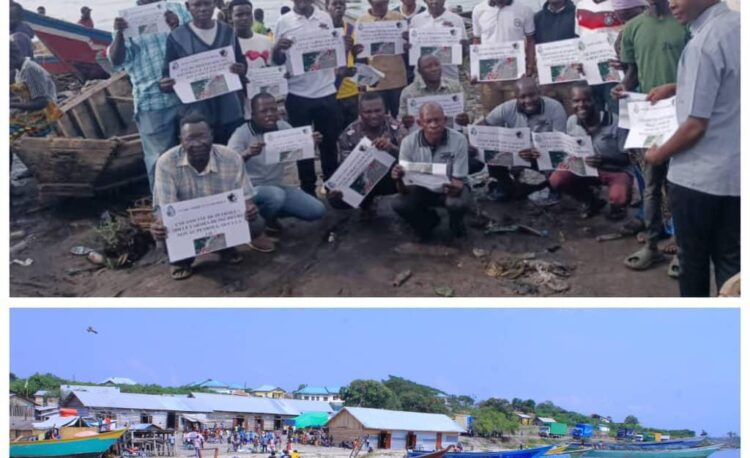The non-governmental organization Forum des Engagés pour le Développement Durable (FORED) has alerted the Ministry of Fisheries and Livestock of the Democratic Republic of Congo (DRC) to the oil exploitation being carried out by Uganda on Lake Albert, located in the Albertin graben shared by the two countries.
According to John K. Lufukaribu Toly, Executive Director of FORED, multinational oil companies are moving ahead with the installation of oil infrastructures, in particular the drilling of wells in Uganda, without informing the Congolese government or the local communities in the DRC. The activist condemns these unilateral actions, which are jeopardizing the ecosystem of Lake Albert, the source of food for thousands of people.
“Uganda wants to exploit the oil in and around Lake Albert. As we all know, there is no such thing as zero risk in oil production. Drilling already causes chemical pollution. Lake Albert is therefore threatened by these activities”, he warns.
FORED is particularly concerned about the lack of clear mechanisms for establishing responsibility in the event of pollution, even though Lake Albert is a vital source of income for thousands of Congolese families.
“Who will take responsibility if Lake Albert is polluted? The Ugandan government or the oil and gas companies?” asks John Lufukaribu.
In response to this threat, FORED is recommending awareness-raising campaigns aimed at local communities and is urging the Congolese government to negotiate clear guarantees in the event of pollution, particularly with the companies involved, such as the multinational Total Energies.
“There must be a clear mechanism of responsibility between governments, operating companies and local communities. If the ministry does not react, we will intensify our actions. The same warning letter has been sent to Uganda and to the operating companies and decentralized bodies”, insists the activist.
According to satellite analyses by the NGO Earth Insight, quoted by the specialist media Mongabay Afrique, almost 22% of a feeder pipeline had already been built by June 2025, and 630 km² of vegetation had been cleared near the Murchison Falls national park in Uganda for the development of the project. The project includes a 1,443 km pipeline linking the Tilenga and Kingfisher oil fields in Uganda to the Tanzanian port of Tanga, giving the landlocked country access to the Indian Ocean.
It should be noted that the Ugandan government and Total Energies have already signed a host agreement for the EACOP on 11 September 2020, according to online media outlet Infonile. John Lufukaribu believes that these processes do not take sufficient account of the rights of local communities and are contributing to the loss of biodiversity in the region.
Environmental organizations in the DRC, such as the Fédération des comités de pêcheurs du lac Albert, are calling for the publication of independent, publicly accessible environmental and ecological impact studies to ensure the protection of this strategic resource.
Written by Victoire Katembo Mbuto

